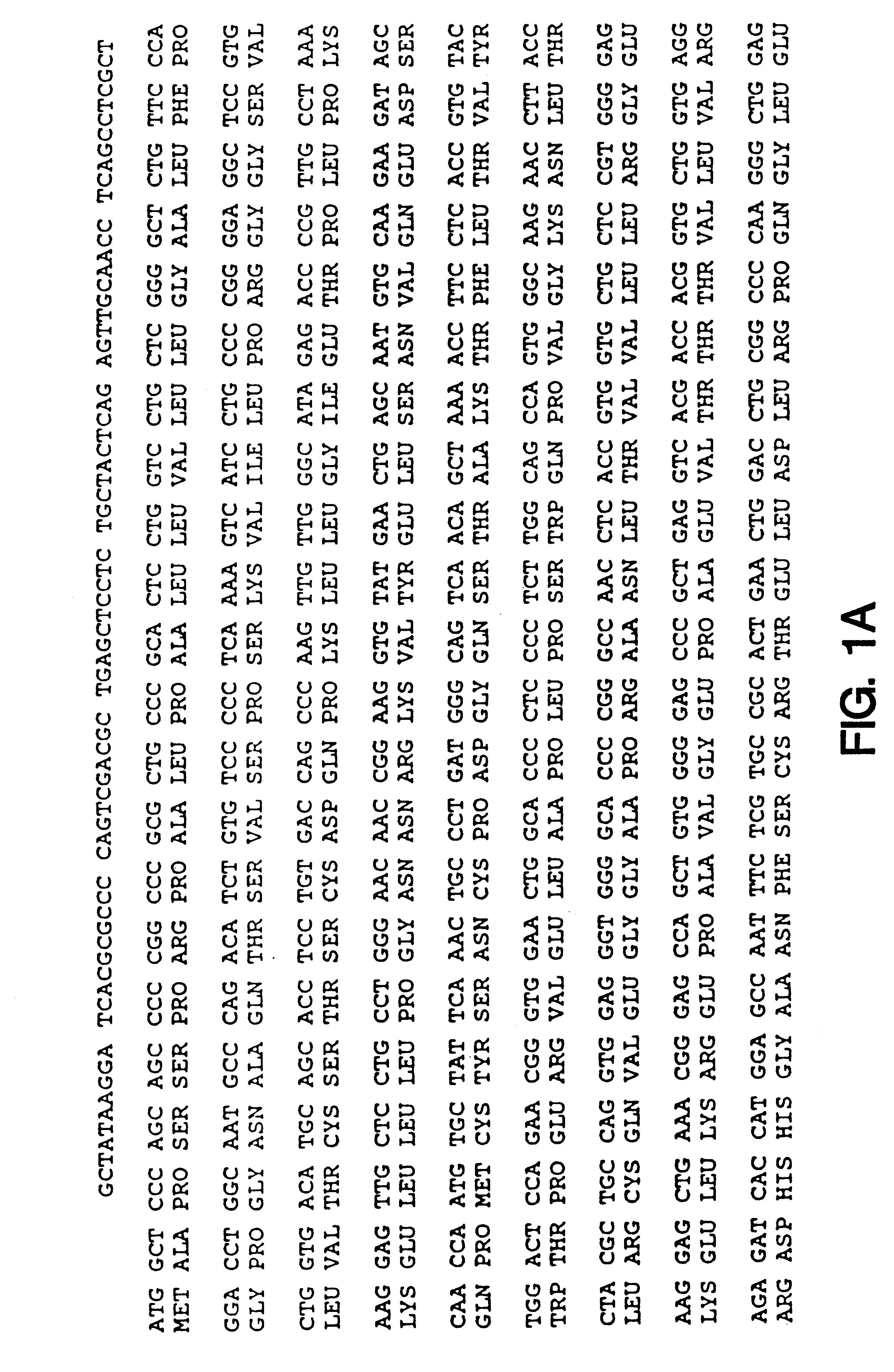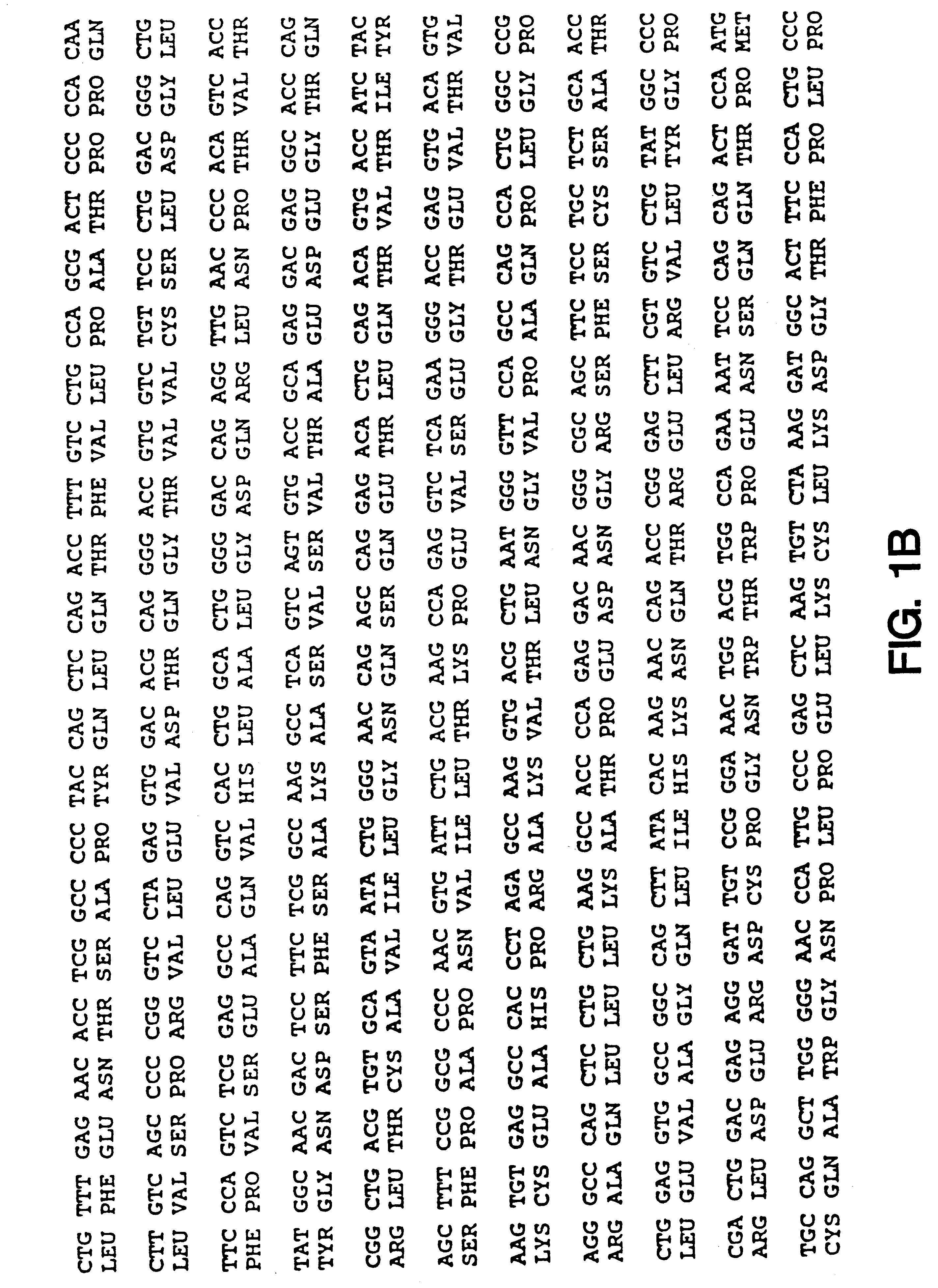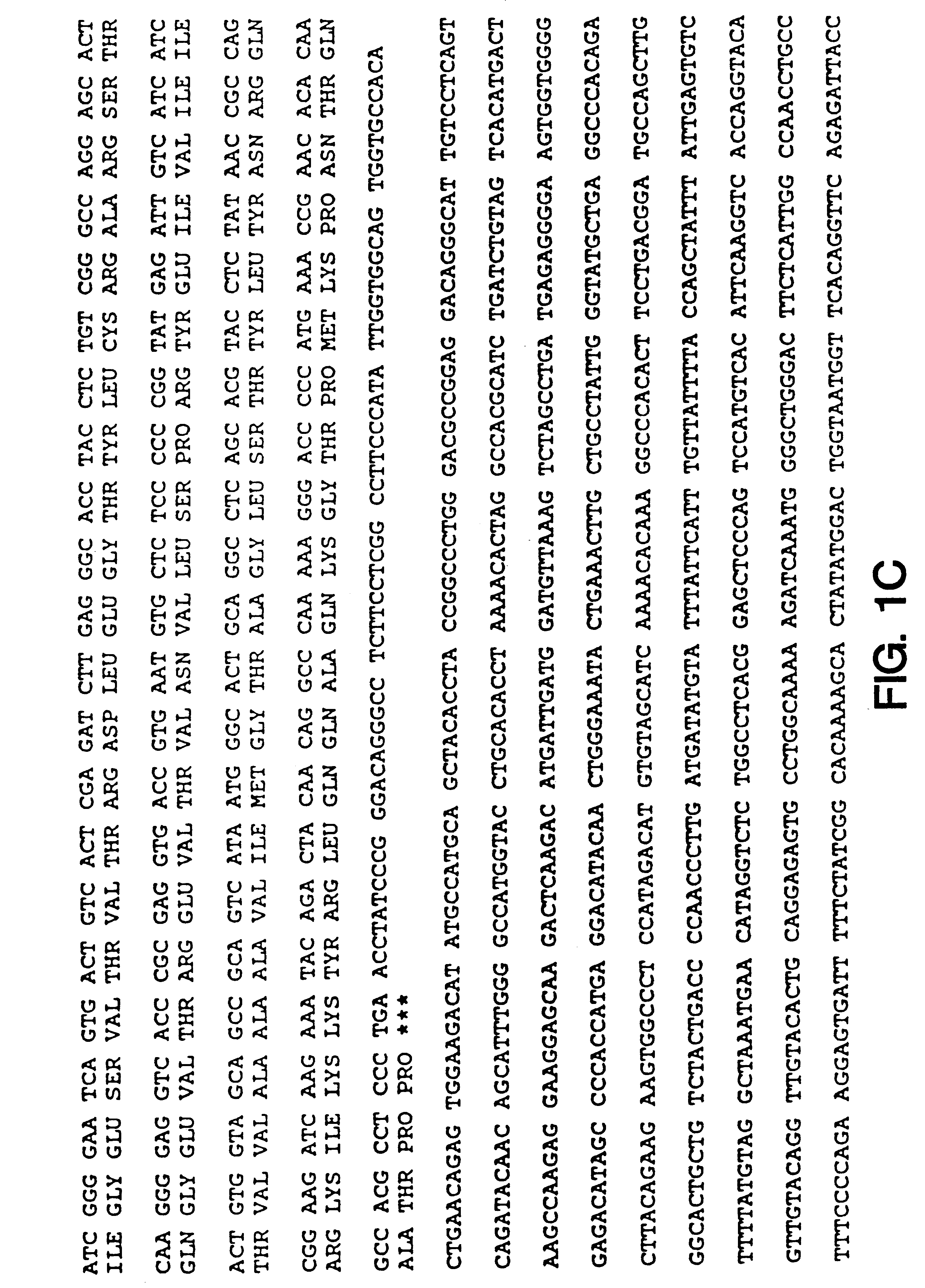Oligonucleotide inhibition of cell adhesion
a technology of oligonucleotide inhibition and cell adhesion, which is applied in the direction of peptides, dna/rna fragmentation, tissue culture, etc., can solve the problems of limiting the usefulness of the drug, no known therapeutic agents effective prevention, damage and destruction of normal tissue, etc., to block the inhibition of icam-1 expression, enhance icam-1 expression, and enhance icam-1 expression
- Summary
- Abstract
- Description
- Claims
- Application Information
AI Technical Summary
Benefits of technology
Problems solved by technology
Method used
Image
Examples
example 1
Expression of ICAM-1, VCAM-1 and ELAM-1 on the surface of cells can be quantitated using specific monoclonal antibodies in an ELISA. Cells are grown to confluence in 96 well microtiter plates. The cells are stimulated with either interleukin-1 or tumor necrosis factor for 4 to 8 hours to quantitate ELAM-1 and 8 to 24 hours to quantitate ICAM-1 and VCAM-1. Following the appropriate incubation time with the cytokine, the cells are gently washed three times with a buffered isotonic solution containing calcium and magnesium such as Dulbecco's phosphate buffered saline (D-PBS). The cells are then directly fixed on the microtiter plate with 1 to 2% paraformaldehyde diluted in D-PBS for 20 minutes at 25.degree. C. The cells are washed again with D-PBS three times. Nonspecific binding sites on the microtiter plate are blocked with 2% bovine serum albumin in D-PBS for 1 hour at 37.degree. C. Cells are incubated with the appropriate monoclonal antibody diluted in blocking solution for 1 hour ...
example 2
A second cellular assay which can be used to demonstrate the effects of antisense oligonucleotides on ICAM-1, VCAM-1 or ELAM-1 expression is a cell adherence assay. Target cells are grown as a monolayer in a multiwell plate, treated with oligonucleotide followed by cytokine. The adhering cells are then added to the monolayer cells and incubated for 30 to 60 minutes at 37.degree. C. and washed to remove nonadhering cells. Cells adhering to the monolayer may be determined either by directly counting the adhering cells or prelabeling the cells with a radioisotope such as .sup.51 Cr and quantitating the radioactivity associated with the monolayer as described. Dustin and Springer, J. Cell Biol. 1988, 107, 321-331. Antisense oligonucleotides may target either ICAM-1, VCAM-1 or ELAM-1 in the assay.
An example of the effects of antisense oligonucleotides targeting ICAM-1 mRNA on the adherence of DMSO differentiated HL-60 cells to tumor necrosis factor treated human umbilical vein endothelia...
example 3
Synthesis and Characterization of Oligonucleotides
Unmodified DNA oligonucleotides were synthesized on an automated DNA synthesizer (Applied Biosystems model 380B) using standard phosphoramidite chemistry with oxidation by iodine. .beta.-cyanoethyldiisopropyl-phosphoramidites were purchased from Applied Biosystems (Foster City, Calif.). For phosphorothioate oligonucleotides, the standard oxidation bottle was replaced by a 0.2 M solution of 3H-1,2-benzodithiole-3-one 1,1-dioxide in acetonitrile for the stepwise thiation of the phosphite linkages. The thiation cycle wait step was increased to 68 seconds and was followed by the capping step.
2'-O-methyl phosphorothioate oligonucleotides were synthesized using 2'-O-methyl .beta.-cyanoethyldiisopropyl-phosphoramidites (Chemgenes, Needham Mass.) and the standard cycle for unmodified oligonucleotides, except the wait step after pulse delivery of tetrazole and base was increased to 360 seconds. The 3'-base used to start the synthesis was a 2'...
PUM
 Login to View More
Login to View More Abstract
Description
Claims
Application Information
 Login to View More
Login to View More - R&D
- Intellectual Property
- Life Sciences
- Materials
- Tech Scout
- Unparalleled Data Quality
- Higher Quality Content
- 60% Fewer Hallucinations
Browse by: Latest US Patents, China's latest patents, Technical Efficacy Thesaurus, Application Domain, Technology Topic, Popular Technical Reports.
© 2025 PatSnap. All rights reserved.Legal|Privacy policy|Modern Slavery Act Transparency Statement|Sitemap|About US| Contact US: help@patsnap.com



